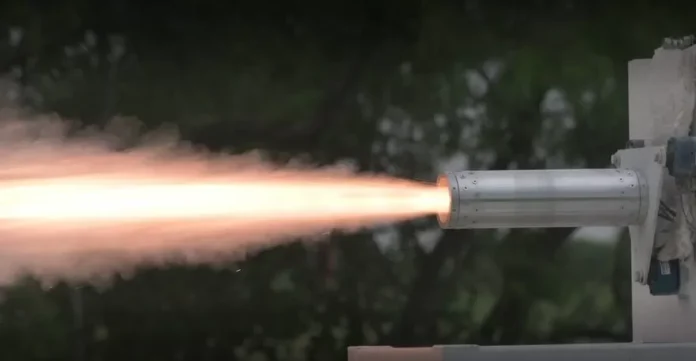X-Bow and Ursa Major, two leading companies in the aerospace industry, have recently been awarded defense contracts to develop and produce solid rocket motors for the United States Department of Defense. This decision by the Pentagon is a major step towards bolstering the domestic industry and reducing reliance on foreign suppliers.
The use of solid rocket motors is crucial in the development and launch of various defense systems, including missiles, rockets, and satellites. With the increasing demand for these systems, it is essential to have a reliable and robust supply chain for solid rocket motors. This is where X-Bow and Ursa Major come in.
X-Bow, a pioneer in the field of solid rocket motor technology, has been awarded a contract worth $500 million to develop and produce these motors for the Department of Defense. The company has a proven track record of delivering high-quality and innovative solutions for the aerospace industry. With this contract, X-Bow will be able to expand its production capacity and create more job opportunities for the American workforce.
Similarly, Ursa Major, a company known for its expertise in advanced propulsion systems, has also been awarded a contract worth $300 million to develop solid rocket motors for the Department of Defense. This contract will not only boost the company’s growth but also contribute to the growth of the domestic industry. Ursa Major’s cutting-edge technology and efficient production processes make it a valuable asset for the defense sector.
The decision to award these contracts to X-Bow and Ursa Major is a significant move by the Pentagon to strengthen the domestic industry and reduce reliance on foreign suppliers. It is a testament to the capabilities and expertise of these companies and their commitment to delivering top-notch solutions for the defense sector.
The Pentagon’s investment in these companies will not only benefit the defense sector but also have a positive impact on the economy. It will create job opportunities, promote technological advancements, and boost the country’s overall competitiveness in the global market.
In addition to the economic benefits, this decision also has strategic implications. By investing in domestic companies, the Pentagon is ensuring the availability of critical defense components in times of need. It also reduces the risk of supply chain disruptions and strengthens the country’s national security.
The post-Pentagon ramps up investments in solid rocket motor suppliers is a clear indication of the government’s commitment to promoting domestic industries. It is a step towards achieving self-sufficiency and reducing dependence on foreign suppliers. This move aligns with the government’s larger goal of promoting the “Made in America” initiative and boosting the country’s manufacturing sector.
Moreover, this decision will also have a positive impact on the environment. Solid rocket motors are known for their efficiency and low carbon emissions, making them a more environmentally friendly option compared to other propulsion systems. By investing in these companies, the Pentagon is not only strengthening the domestic industry but also contributing to a greener future.
The partnerships between the Department of Defense and X-Bow and Ursa Major are a win-win situation for both parties. The defense sector will benefit from the companies’ advanced technology and expertise, while the companies will have the opportunity to expand their operations and contribute to the country’s economic growth.
In conclusion, the recent decision by the Pentagon to award defense contracts to X-Bow and Ursa Major is a significant step towards bolstering the domestic industry and promoting self-sufficiency. It is a testament to the capabilities and expertise of these companies and their commitment to delivering top-notch solutions for the defense sector. This move will not only benefit the economy but also have strategic and environmental implications. The future looks bright for the domestic aerospace industry, thanks to the Pentagon’s investment in these two companies.

